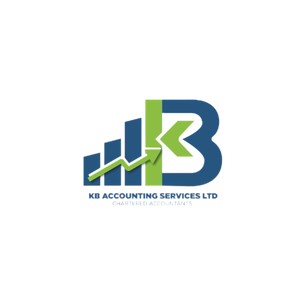
Operating a business in Malawi involves navigating a range of regulations to ensure smooth and legal operations. Compliance with local laws helps businesses avoid penalties, build trust, and access opportunities, such as public procurement contracts. Here’s a guide to the key compliance requirements for businesses in Malawi, covering tax obligations, public procurement, city and town council permits, and industry-specific regulations.
1. Know the Key Regulatory Authorities in Malawi
Compliance requires understanding the different regulatory bodies that oversee business activities. Knowing which authorities apply to your business helps ensure you meet all legal requirements. The primary regulatory authorities in Malawi include:
- Malawi Revenue Authority (MRA): Responsible for tax compliance, including income tax, VAT, and PAYE (Pay As You Earn).
- Registrar General: Manages business registration, corporate filings, and compliance with the Companies Act.
- Public Procurement and Disposal of Assets Authority (PPDA): This authority ensures transparency, fairness, and accountability for companies involved in public procurement and government contracts.
- Ministry of Labour: Oversees labour laws, employee rights, and workplace safety.
- City and Town Councils: Regulate local business permits, zoning requirements, and health inspections for businesses operating within city and town boundaries.
Keeping up-to-date with these authorities’ guidelines and requirements is essential for avoiding compliance issues and maintaining smooth operations.
2. Register and Renew Your Business License
To operate legally, all businesses in Malawi must register with the Registrar General. After registration, businesses receive a Certificate of Incorporation and a unique registration number. Limited companies must submit their returns at the end of each financial year.
City and Town Council Permits: Businesses operating within city or town jurisdictions, such as Blantyre, Lilongwe, Mzuzu, and other town councils, must obtain permits from their local council. These permits vary depending on the business type, size, and location, and they need annual renewal. In addition, city and town councils enforce zoning regulations, ensuring businesses operate in approved areas and comply with local ordinances.
Tip: Set reminders for both national and local council license renewals to avoid missed deadlines.
3. Comply with PPDA Regulations for Public Procurement
Businesses involved in public procurement or government contracts must comply with regulations set by the Public Procurement and Disposal of Assets Authority (PPDA). PPDA guidelines help ensure transparency, accountability, and fairness when the government engages with private businesses. Key steps include:
- PPDA Registration: Businesses interested in government contracts must register with the PPDA to be eligible for public procurement opportunities.
- Understand the Public Procurement Act: It’s important to familiarize yourself with the Public Procurement and Disposal of Assets Act to ensure your business operations align with the law.
- Bid Submission Compliance: Public tenders require adherence to strict bidding criteria. Ensuring your bid submissions are complete and accurate can prevent disqualification or potential bans from future tenders.
Regularly checking the PPDA website or consulting official updates can help your business stay aligned with procurement requirements.
4. Fulfill Your Tax Obligations
Tax compliance is essential for all businesses in Malawi. The Malawi Revenue Authority (MRA) has specific requirements, including:
- Registering for a Taxpayer Identification Number (TPIN).
- Filing annual income tax returns and paying corporate income tax.
- Registering for VAT if your turnover exceeds MWK 25 million and submitting VAT returns as required.
- Submitting PAYE (Pay As You Earn) and other employee payroll taxes.
Staying organized and on top of tax deadlines is essential for compliance. Many businesses choose to work with an accountant or tax professional for accurate filing and timely submissions.
5. Comply with Employment Laws
Malawi’s labour laws are designed to protect employee rights and promote a safe working environment. Key compliance areas include:
- Employment Contracts: Every employee should have a written contract outlining terms of employment, salary, and key details.
- Minimum Wage and Overtime: Comply with the minimum wage requirements and ensure fair payment for overtime.
- Workplace Safety: Employers must maintain a safe workplace with the necessary safety equipment and protocols.
- Payroll Deductions: Ensure correct calculation and timely submission of social security, PAYE, and other required deductions.
Regularly updating HR staff on labour laws and reviewing employment practices can help your business reduce compliance risks and promote a fair workplace.
6. Meet City and Town Council Requirements for Permits and Zoning
City and town councils play a significant role in regulating businesses within their boundaries. Compliance with local requirements includes:
- Business Permits and Zoning: Businesses, such as shops, restaurants, and factories, must obtain permits from city or town councils. These permits confirm that the business location and activities comply with zoning and other local requirements.
- Health and Safety Inspections: Councils conduct inspections for compliance with health and safety standards, especially for food establishments, hotels, and other public spaces.
- Environmental Compliance: Some councils have additional environmental requirements for businesses that impact the local environment, such as waste management or manufacturing.
Consult with your local city or town council to understand specific permits, zoning rules, and health regulations that may apply to your business. Staying compliant with local council requirements helps businesses avoid fines and maintain a positive standing in the community.
7. Understand Industry-Specific Regulations
Additional regulatory requirements apply to specific industries, with authorities overseeing areas like construction, finance, and health services. Examples include:
- National Construction Industry Council (NCIC): Regulates construction industry standards.
- Malawi Accountants Board (MAB): Oversees financial services and accounting practices.
- Relevant Ministries: Ministries such as Health or Agriculture often have regulations for sectors like healthcare, agriculture, and manufacturing.
If your business operates in one of these sectors, be sure to review relevant regulations to avoid fines or legal issues. Consulting industry-specific authorities or professional advisors will help you meet the necessary standards.
8. Stay Updated on Regulatory Changes
Laws and regulations can change, and staying informed is essential for businesses to maintain compliance. To stay informed, keep up with updates from regulatory authorities, subscribe to newsletters, join industry groups, or attend compliance workshops. This proactive approach ensures your business can quickly adapt to new requirements and avoid compliance pitfalls.
9. Seek Professional Help for Complex Compliance Needs
The regulatory environment in Malawi can be complex, particularly as businesses grow. If managing compliance overwhelms you, consider engaging a consultant like KB Accounting Services Limited. Compliance professionals can offer guidance on tax filings, city and town council permits, labour laws, and industry-specific regulations, as well as conduct audits to identify potential compliance gaps.
Remaining compliant in Malawi is essential for building a trustworthy business foundation, avoiding penalties, and accessing opportunities like government contracts. By staying informed, keeping organized records, and consulting professionals when necessary, businesses can operate confidently within Malawi’s regulatory framework.
